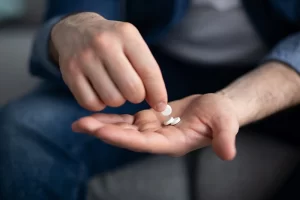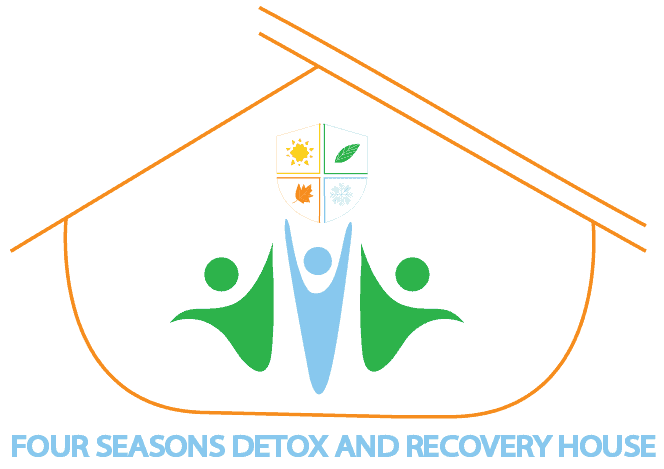Choosing the right rehab program is a crucial step toward recovery for individuals struggling with addiction. Understanding the differences between inpatient vs outpatient rehab programs can help potential clients make informed decisions about their treatment. This article explores the benefits of inpatient rehab, the advantages of outpatient rehab, and provides a comprehensive comparison of these two types of programs. Whether you’re looking for the best option for yourself or a loved one, this guide aims to provide the clarity you need.
Understanding Inpatient vs Outpatient Rehab Programs
Inpatient Rehab Programs
Inpatient alcohol treatment programs, also known as residential treatment, require patients to stay at a treatment facility for a designated period, typically ranging from 28 days to several months. During this time, individuals receive round-the-clock care and support from a team of medical professionals, including doctors, nurses, and therapists. This immersive environment is designed to remove the distractions and triggers of daily life, allowing patients to focus solely on their recovery.
Outpatient Rehab Programs
Outpatient rehab programs, on the other hand, allow individuals to live at home while attending scheduled treatment sessions at a rehab facility. These sessions can vary in frequency and duration, depending on the individual’s needs and the program’s structure. Outpatient rehab is a more flexible option, making it possible for patients to maintain their daily responsibilities, such as work or family commitments, while receiving treatment.
Benefits of Inpatient Rehab
Inpatient rehab programs offer several benefits that can be crucial for individuals with severe addictions or those who need a highly structured environment to support their recovery. Some of the key benefits include:
- Intensive Care and Monitoring: Inpatient programs provide 24/7 medical care and supervision, which is essential for managing withdrawal symptoms and preventing relapse. This level of care ensures that any medical emergencies are promptly addressed.
- Structured Environment: The highly structured environment of inpatient rehab helps eliminate distractions and negative influences, allowing patients to focus entirely on their recovery. The daily schedule typically includes therapy sessions, group activities, and educational programs.
- Access to Medical and Psychological Support: Inpatient facilities offer a comprehensive range of medical and psychological services, including detoxification, individual therapy, group therapy, and medication management. This integrated approach addresses both the physical and mental aspects of addiction.
- Community and Peer Support: Being surrounded by individuals who are also on the path to recovery can be incredibly motivating. Inpatient rehab fosters a sense of community and peer support, which can be instrumental in maintaining long-term sobriety.
Related: What is Inpatient Alcohol Treatment?
Pros and Cons of Inpatient Rehab
Pros:
- 24/7 care and support
- Immersive, distraction-free environment
- Immediate access to medical and psychological resources
- Strong sense of community and peer support
Cons:
- Higher cost compared to outpatient programs
- Time away from family, work, and daily responsibilities
- May not be necessary for individuals with less severe addictions
Advantages of Outpatient Rehab
Outpatient rehab programs offer a different set of advantages that may be more suitable for individuals with less severe addictions or those who need to balance treatment with other responsibilities. Key benefits include:
- Flexibility and Convenience: Outpatient programs are designed to fit into the patient’s daily schedule, making it possible to attend therapy sessions while maintaining work, school, or family commitments. This flexibility can be particularly important for those who cannot afford to take extended time off from their daily lives.
- Lower Cost: Generally, outpatient rehab programs are less expensive than inpatient programs. This cost-effectiveness can make treatment more accessible to a wider range of individuals.
- Ability to Maintain Daily Responsibilities: Outpatient treatment allows patients to continue living at home and manage their everyday responsibilities. This can be crucial for those who need to support their families or cannot take time off from work.
- Support Networks at Home: Being in an outpatient program allows individuals to receive support from their family and friends while undergoing treatment. This support can play a significant role in the recovery process.
Pros and Cons of Outpatient Rehab
Pros:
- Cost-effective and accessible
- Flexible schedule
- Integration with daily life
- Support from family and friends
Cons:
- Less intensive than inpatient care
- Higher risk of exposure to triggers and relapse
- Limited access to immediate medical support
Comparing Inpatient vs Outpatient Rehab Programs
When choosing between inpatient vs outpatient rehab programs, several factors need to be considered to determine which program is the best fit for the individual’s needs. Here is a side-by-side comparison of key factors:
- Cost: Inpatient programs tend to be more expensive due to the comprehensive care and accommodation provided. Outpatient programs are generally more affordable, making them accessible to a broader audience.
- Intensity of Treatment: Inpatient rehab offers a more intensive and immersive treatment experience, which can be critical for those with severe addictions. Outpatient rehab provides a less intensive approach, suitable for individuals with mild to moderate addiction levels.
- Duration of Programs: Inpatient programs usually have a set duration, ranging from a few weeks to several months. Outpatient programs can vary significantly in length, often allowing for more flexibility based on the individual’s progress and needs.
- Suitability for Different Types of Addictions: Inpatient rehab is often recommended for individuals with severe or long-term addictions, while outpatient rehab may be sufficient for those with less severe substance abuse issues.
- Success Rates: Studies suggest that inpatient rehab programs generally have higher success rates due to the comprehensive care and structured environment. However, outpatient programs can also be highly effective, particularly when the individual has a strong support system and is committed to the recovery process.
Choosing Between Inpatient vs Outpatient Rehab Programs
Selecting the right rehab program involves considering various factors, including:
- Severity of Addiction: Individuals with severe or long-term addictions may benefit more from the intensive care provided by inpatient rehab. Those with less severe addictions might find outpatient programs more suitable.
- Personal and Family Obligations: Outpatient rehab allows patients to continue meeting their personal and family responsibilities, which can be a deciding factor for many.
- Financial Considerations: Cost is often a significant factor. Outpatient programs are typically less expensive, making them more accessible for individuals without extensive insurance coverage or financial resources.
- Support System: Having a strong support system at home can enhance the effectiveness of outpatient treatment. Conversely, individuals without such support might benefit more from the community aspect of inpatient rehab.
- Personal Preferences and Comfort Level: Some individuals may feel more comfortable in a residential setting, while others might prefer the flexibility of outpatient care.
Understanding how to support an alcoholic, how to talk to an alcoholic, and navigating the 6 stages of alcohol recovery are crucial steps in the process of choosing the right rehab program.
Conclusion
Choosing between inpatient vs outpatient rehab programs is a personal decision that depends on various factors, including the severity of the addiction, personal obligations, financial considerations, and the individual’s support system. Both types of programs offer unique benefits and can be highly effective in helping individuals achieve long-term sobriety. If you or a loved one is struggling with addiction, it’s essential to seek professional advice to make an informed decision.
FAQs
What is the main difference between inpatient and outpatient rehab programs? Inpatient rehab requires patients to stay at a facility for a set period, receiving 24/7 care, while outpatient rehab allows individuals to live at home and attend scheduled treatment sessions.
Which type of rehab is more effective? Both inpatient and outpatient rehabs can be effective, but inpatient rehab typically has higher success rates due to its intensive care and structured environment.
How do I decide which rehab program is right for me? Consider factors such as the severity of the addiction, personal and family obligations, financial situation, support system, and personal preferences.
What are the costs associated with inpatient and outpatient rehab? Inpatient rehab is generally more expensive due to the comprehensive care and accommodation provided, while outpatient rehab is more affordable.
Can outpatient rehab be as effective as inpatient rehab? Yes, especially for individuals with a strong support system and a commitment to recovery. The effectiveness of the treatment depends on various factors, including the individual’s dedication and the quality of the rehab program.
By addressing these questions and providing detailed comparisons, this article aims to help individuals make informed decisions about their rehab options. For those considering rehab, exploring options like luxury detox can also provide additional comfort and amenities during the recovery process.






